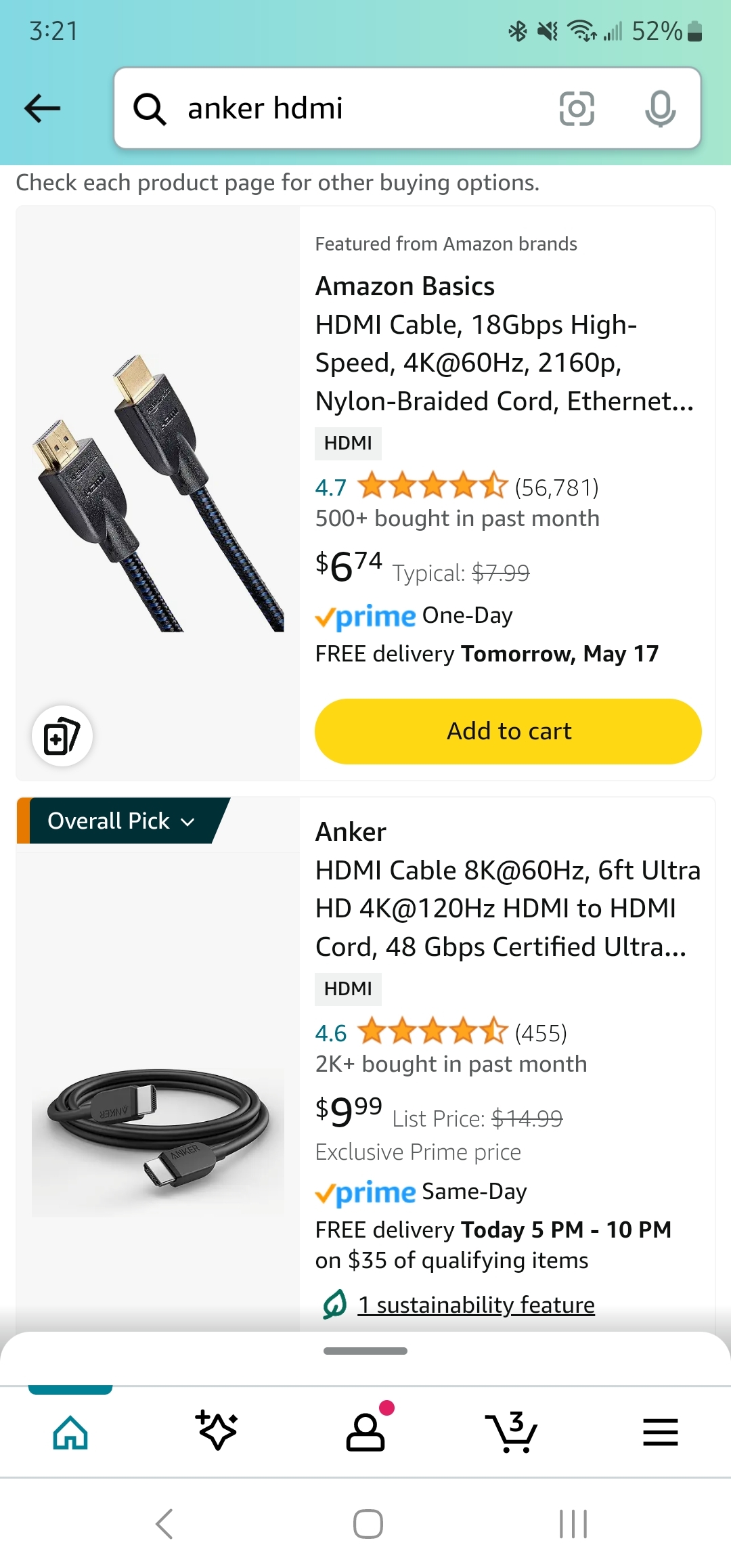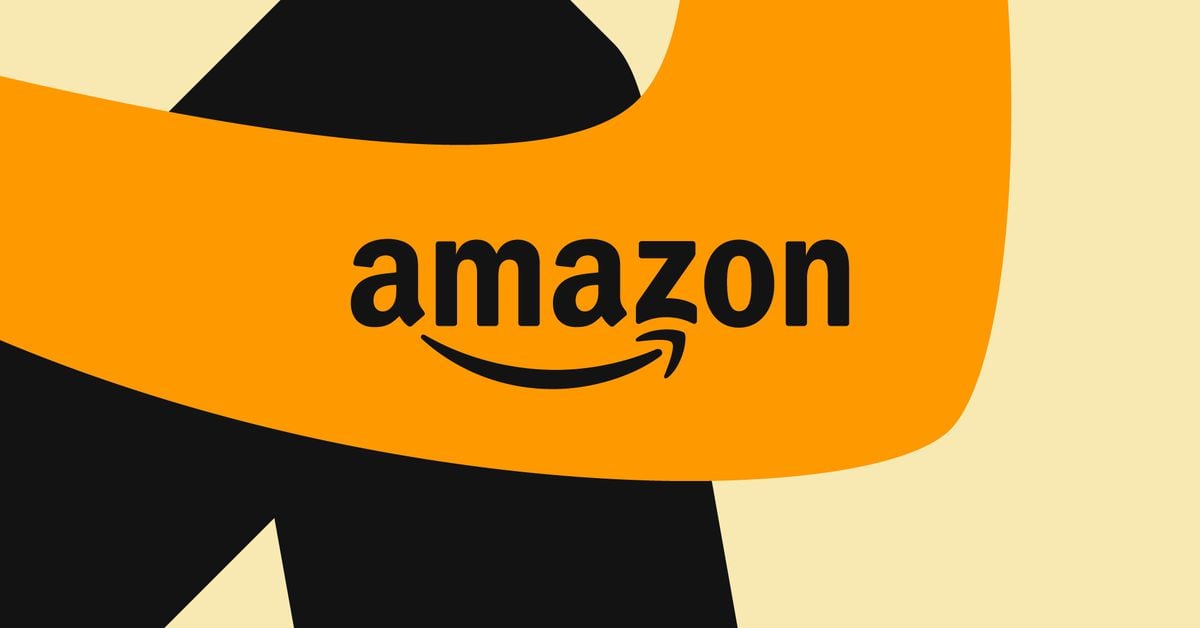- cross-posted to:
- [email protected]
- [email protected]
- cross-posted to:
- [email protected]
- [email protected]
-
Arizona’s Attorney General, Kris Mayes, filed two lawsuits against Amazon on Wednesday for allegedly engaging in deceptive business practices and maintaining monopoly status. The first lawsuit accuses the company of using dark patterns to keep users from canceling their Amazon Prime subscriptions, violating Arizona’s Consumer Fraud Act. This is similar to a complaint filed by the Federal Trade Commission (FTC) against Amazon in June.
-
The second lawsuit alleges that Amazon unfairly maintains its monopoly status through agreements with third-party sellers that restrict them from offering lower prices off of the platform than they do on Amazon, violating Arizona’s Uniform State Antitrust Act. This practice has also been targeted by other state attorneys general in cases filed against Amazon.
-
Additionally, the lawsuit accuses Amazon’s Buy Box algorithm of being biased towards first-party retail offers or sellers who participate in Fulfillment By Amazon, leading consumers to overpay for items that are available at lower prices from other sellers on Amazon. This aspect is also reflected in the FTC’s recent antitrust lawsuit against Amazon, which has been joined by more than a dozen state attorneys general.
-
Arizona seeks to stop Amazon from engaging in these allegedly deceptive and anticompetitive practices and award civil penalties and disgorgement of ill-gotten gains.
about damn time a company was targeted in a lawsuit over dark patterns.
It really should be fraud. It is deception used for personal gain. While I think it should be fraud, it will probably need new legislation to make it so.
The result will be Amazon gets a baby fine and shrugs it off as the cost of doing business.
Without fines being proportional to the business annual income nothing will be accomplished.
We don’t know their mind. We don’t know their kind. Dark necessities are part of their design.
As someone highly susceptible to dark patterns, I’d like to see more regulation and investigation of them in commercial practices.
Heck, some kinds of commercial fluffing are outright lies.
And now probably can’t wait until someone accuses Facebook, Google, Apple, Microsoft, Twiiter/X, Reddit, etc., of similar anti-trust monopoly practices and give the fediverse the appearance of the only option to switch to.
I didn’t read a single thing beyond the title but… yeah that checks out
I don’t mean to support amazon in this, but the article outlines them promoting their own products over others? Unless the buy box implies something other than “we would like you to buy this”, I dont really understand the issue with that particular point
I mean even in that case where you think it benign, yes…
If I search for a specific product by name, and an amazon variant exists, they push their above the one I was specifically searching for.
For example:

Exactly an example. This is the “dark pattern”.
Notice that it’s so perfectly crafted that the “add to cart” for the Anker is off the page. Making it 2 actions to get to the one you actually wanted, and just one for theirs. This is why the lawsuit is for “Dark patterns” and monopolization. It’s super anti-consumer, but likely makes them boatloads of money and they do this stuff EVERYWHERE.
Thanks for elaborating. I essentially don’t use amazon so I’m not familiar with their newest shitty practices. This is obviously very anti consumer, I just failed to see it as explained in the article
I hate Amazon probably more than most people in the world and have been boycotting them since roughly 1999, but… “dark patterns???”
EDIT: TIL a new term, and it refers to something I have hated for years.
Yes, dark patterns
People should definitely learn about these, they affect an awful lot of our modern digital environment, not just in subscriptions but all the ways companies try to manipulate our behaviour.
Ever see a cookie popup and “Accept” is a big colourful button, but if you want to decline it’s behind a grey “more options” button, then you have to scroll through a dozen different categories and disable them all, then the button has some ambiguous label like “confirm cookie choices” which gives the impression you’re accepting them again? That’s a dark pattern.
User interface design has long known how to streamline a process and communicate with a user to increase the number of people who complete a certain task, so it’s a simple matter of inverting that logic to make a task hard and obscure to reduce that number.
What’s honestly surprising is that this is actually illegal somewhere. I didn’t realise there was any legislation about this.
Ah, so dark as in evil, not dark as in low light. I hadn’t heard of that, but going through the darkpatterns.org website is basically a laundry list of shit I hate.
Yeah it’s a catch all term for psychologically manipulative UI/UX
I like how UX emerged as a dedicated field and profession in my time and then was shortly thereafter used for evil.
think that’s kind of the fate of all new things in today’s world. if it can be used unscrupulously for money, someone will be doing that for tremendous profit. especially since new stuff usually isn’t illegal, Even if it should be.
I thought it was dark as in manipulation that isn’t readily visible. For instance, a micro-transaction for a character reskin accompanied by default skins being crap. In Watchdogs Legion all the Londoners you could recruit generally had poor fashion, then money was scant and clothes were super expensive (but you could by more money with micro-transctions).
In one of the Space Quest series, as a joke (black humor in theme with the series) whenever an airlock interface was opened, the mouse cursor started on the Open Outer Door button, so an accidental double-tap was deadly, so dark patterns were known about in the 1990s, though not yet given a name.
Click-wrapped TOS and contracts for software and services were one such strategem, though we’re more aware of it today, and more judges are willing to reject contracts and TOS that didn’t include a clear, announced disclosure of their odious terms.
I like how Facebook intentionally delays spam reports made via Messenger on desktop. That’s after clicking through excessive prompts (which are more understandable due to the general public’s abuse of reporting features).
The term “dark pattern” refers to any deceptive practice, no matter how small or insignificant it may seem, that online websites, apps, etc use to get people to do the site/app’s desired behavior, such as in this case, not cancel their Prime subscription. Not all of these examples may apply in Amazon’s case, but some examples would be making the fields or buttons for canceling or keeping your subscriptions different colors or sizes, making the default choice to keep the subscription, making you view a bunch of ads to keep the sub or go through a bunch of other pages before canceling, or hiding the cancelation option in fine print in a corner of the site. The “dark” part means that the average person usually doesn’t notice the deceptive nature of the practices.
If you haven’t noticed, you’ve been not paying attention. I canceled Prime a while ago and they try very hard to get you back. And they try to sneak on you billed expedited shipping when over minimum gratis shipping quota. Dark patterns galore.
It would be a major pain for me to boycott them completely so I don’t, yet.
I’ve been boycotting Amazon since 1999, so no I haven’t been paying attention.
Ok, if you don’t use their web site you won’t see the UX dark patterns. Trust us, they there and fit with the overall garbagefication theme. Annoys the living shit out of me. At least no more Prime Video UI and ad trainwreck.









